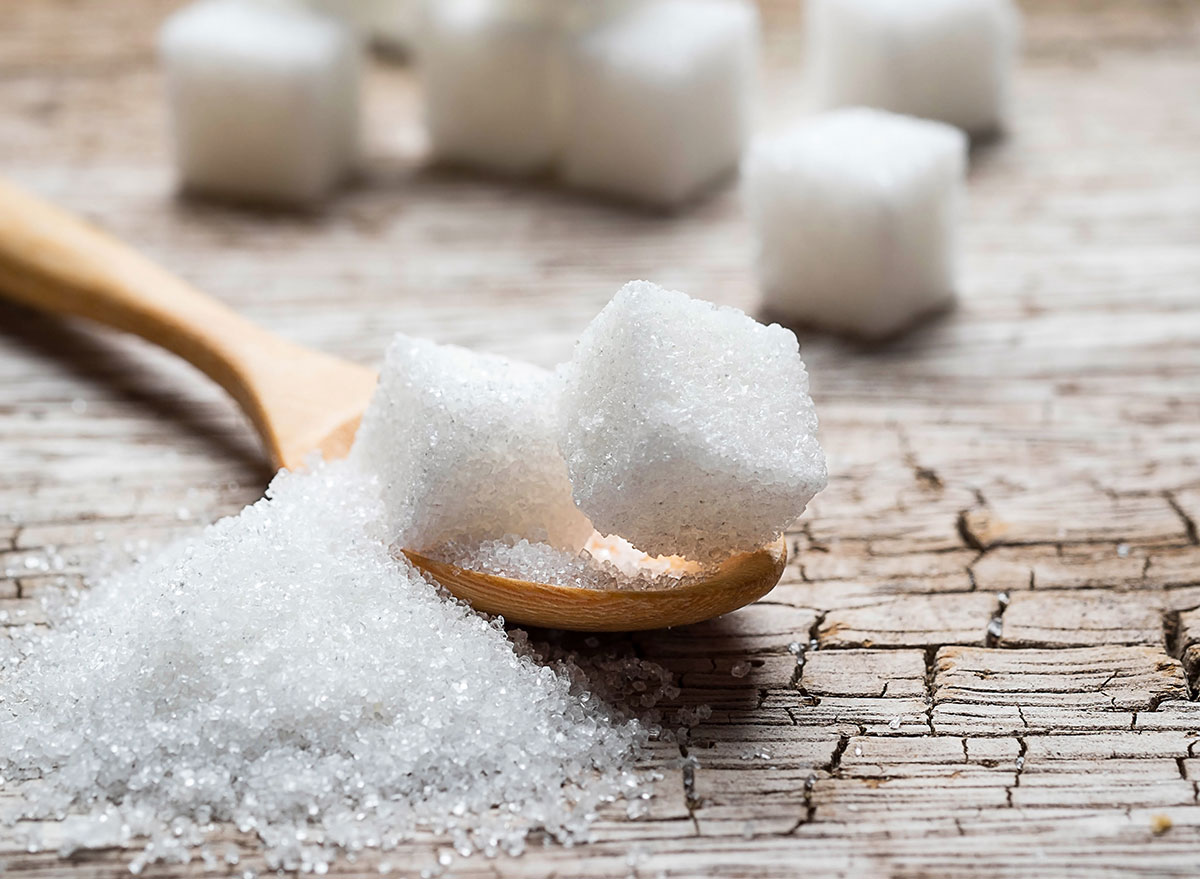Added Sugars

Here’s some not-so-sweet news: “For most Americans, the worst food for inflammation is sugar. It causes the body to release cytokines, which are inflammatory messengers,” Batayneh says.4
According to research published in the journal PLoS One, blood sugar highs and lows are linked to the development and/or progression of two of the most common inflammation-related diseases: Type 2 diabetes and rheumatoid arthritis.5
Plain old white sugar isn’t the only culprit, though. When considering foods that cause inflammation in the body, anything with lots of added syrups or sugars (we see you, soda and spaghetti sauces) can be a trigger.
“High fructose corn syrup is a processed additive that is often added to packaged foods to help increase shelf life,” Fine says. “Highly processed sugars like this, although not named ‘sugar,’ can hide in many packaged foods. This is true of even those not regarded as sweet, such as sauces, condiments, marinades, and savory fillings.”
In addition to ingredient names with “sugar” and “syrup” included, watch out for any word on the nutrition facts panel that ends in -ose (like dextrose or maltose).
“If indulging in sugary treats excessively leaves your joints feeling stiffer and you find you have less energy the next day, you might be experiencing some of the signs of early inflammation in your body,” Batayneh says.
Artificial Sweeteners

Right up there with real sugar in the ranks for the worst foods for inflammation are “fake” ones.
“Artificially-sweetened foods and drinks are the absolute first place that I would encourage a person to start making changes,” Batayneh says. “Aspartame, once metabolized, is made up of three substances: aspartic acid, phenylalanine, and methanol, and is an artificial sweetener found in thousands of foods as well as diet soda.”6
Since the body views artificially-sweetened items—such as sugar-free candy, low-calorie juice drinks, and even many gums—as a foreign substance, your body may respond to it by attacking the chemical (which can lead to an inflammatory response).
Processed Meats
It might be time to reexamine your relationship with that deli-sliced pastrami.
“Processed meat, including hot dogs, ham, bacon, sausage, and some deli meats are usually treated with nitrite and nitrogen oxides as means to preserve and retain flavor. These compounds are thought to contribute to the formation of inflammatory-producing nitrous compounds that have been associated with increased risk of certain chronic diseases like stomach cancer,” Fine says.7
Studies have proven that diets high in saturated fats, which are found in meat products that are not so lean, might increase risk for developing arthritis, Batayneh adds.8 (After you study up on all of the answers to “what are the worst foods for inflammation?” learn more about which fats are good for you and which ones aren’t.)
Refined Carbs
:strip_icc():format(webp)/RU301686-691d65e2595245acb65fc18ccff9369c.jpg)
With most of the fiber stripped away, refined grains get digested and converted into sugar quicker (in other words, are higher on the glycemic index) than their whole grain counterparts. Common foods that cause inflammation in this category include white rice, white pasta, white bread, breakfast cereals and more.
“The consumption of sugars found in refined carbohydrate products like white bread and pasta have been found to increase the formation of advanced glycation end products (AGEs), compounds linked to inflammation,” Batayneh says.9
Speaking of carbs and foods that cause inflammation, a certain wheat protein is also turning heads.
“The link between gluten and pain from arthritis is unclear and has not been confirmed by research, but some people believe that their arthritis symptoms worsen after eating a meal containing gluten,” Batayneh says.
Excess Alcohol

Consume about one drink each day (12 ounces of beer, 1 ounce of liquor, or 5 ounces of wine), and your body will experience lower levels of some of the common markers of inflammation, per the Arthritis Foundation. But anything more than that and you could experience negative impacts from that over-imbibing.10
Too much alcohol can lead to leaky gut, which allows inflammation-triggering bacteria to escape from the stomach and intestines and enter the blood—causing an inflammatory response, according to research in the World Journal of Gastroenterology.
Source: https://www.bhg.com








